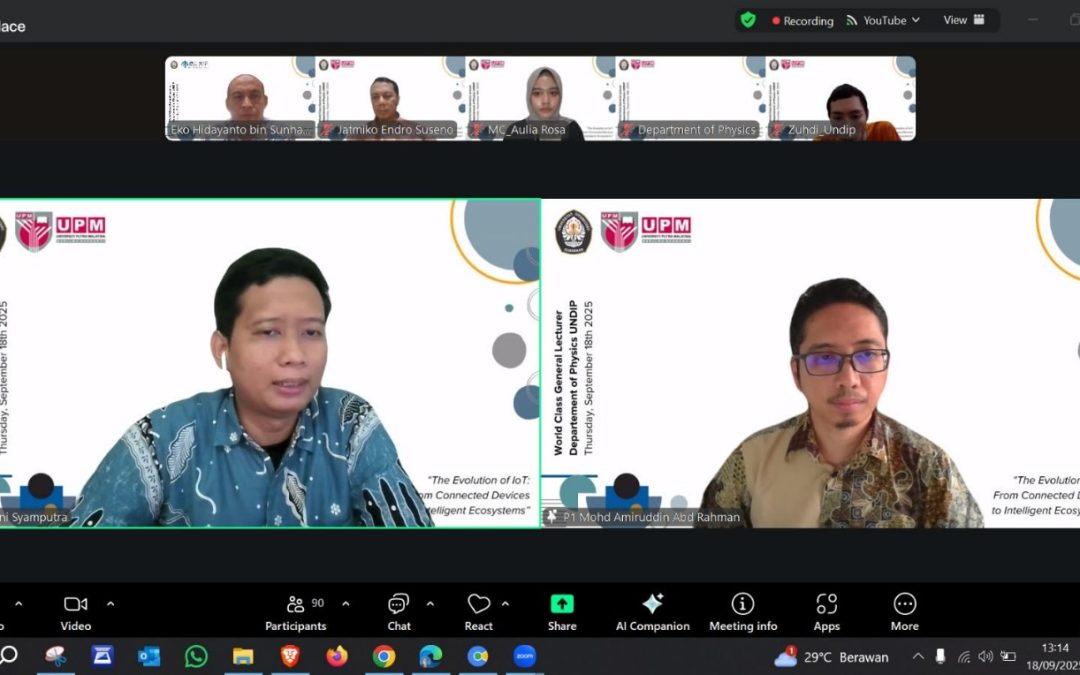Semarang, September 18, 2025 — Today, in several ecosystems such as industry and agriculture, the Internet of Things (IoT) has been successfully implemented for automation and monitoring, helping to increase production output and optimize resource efficiency. This topic was highlighted during an International Public Lecture organized by the Department of Physics, Faculty of Science and Mathematics (FSM), Diponegoro University, featuring guest speaker Assoc. Prof. Dr. Mohd Amiruddin Abd Rahman from Universiti Putra Malaysia.
The event was conducted online and attended by both students and lecturers from the Physics Study Program at FSM Undip, as well as participants from outside the university. The lecture carried an engaging topic titled “The Evolution of IoT: From Connected Devices to Intelligent Ecosystems.”
IoT has evolved rapidly since it was first introduced. From merely connecting devices, IoT has now grown into an intelligent ecosystem capable of improving efficiency, productivity, and quality of life.
According to Assoc. Prof. Mohd Amiruddin, in the industrial sector, IoT has enabled better automation and monitoring. By using sensors and IoT devices, companies can monitor machine and equipment conditions in real-time, thereby reducing downtime and increasing efficiency. Moreover, IoT helps companies optimize supply chains and enhance product quality.
In the agricultural sector, IoT has contributed to improving crop yields and resource efficiency. Through sensors and IoT devices, farmers can monitor soil conditions, weather, and plant growth in real-time, allowing them to make more accurate decisions. IoT also assists in optimizing the use of water and fertilizers, helping to reduce costs while boosting productivity.
Despite its many benefits, IoT still faces several challenges, such as data security and privacy concerns. In addition, interoperability and standardization remain key issues within the IoT ecosystem. Nevertheless, with the rapid advancement of technology, IoT offers the potential to create a better and more sustainable future.
Finally, Assoc. Prof. Mohd Amiruddin emphasized that IoT has evolved and transformed the way we interact with technology. Through IoT implementation, we can build a smarter, more efficient, productive, and sustainable ecosystem. He expressed hope that this knowledge can be harnessed to shape a brighter future for all.

